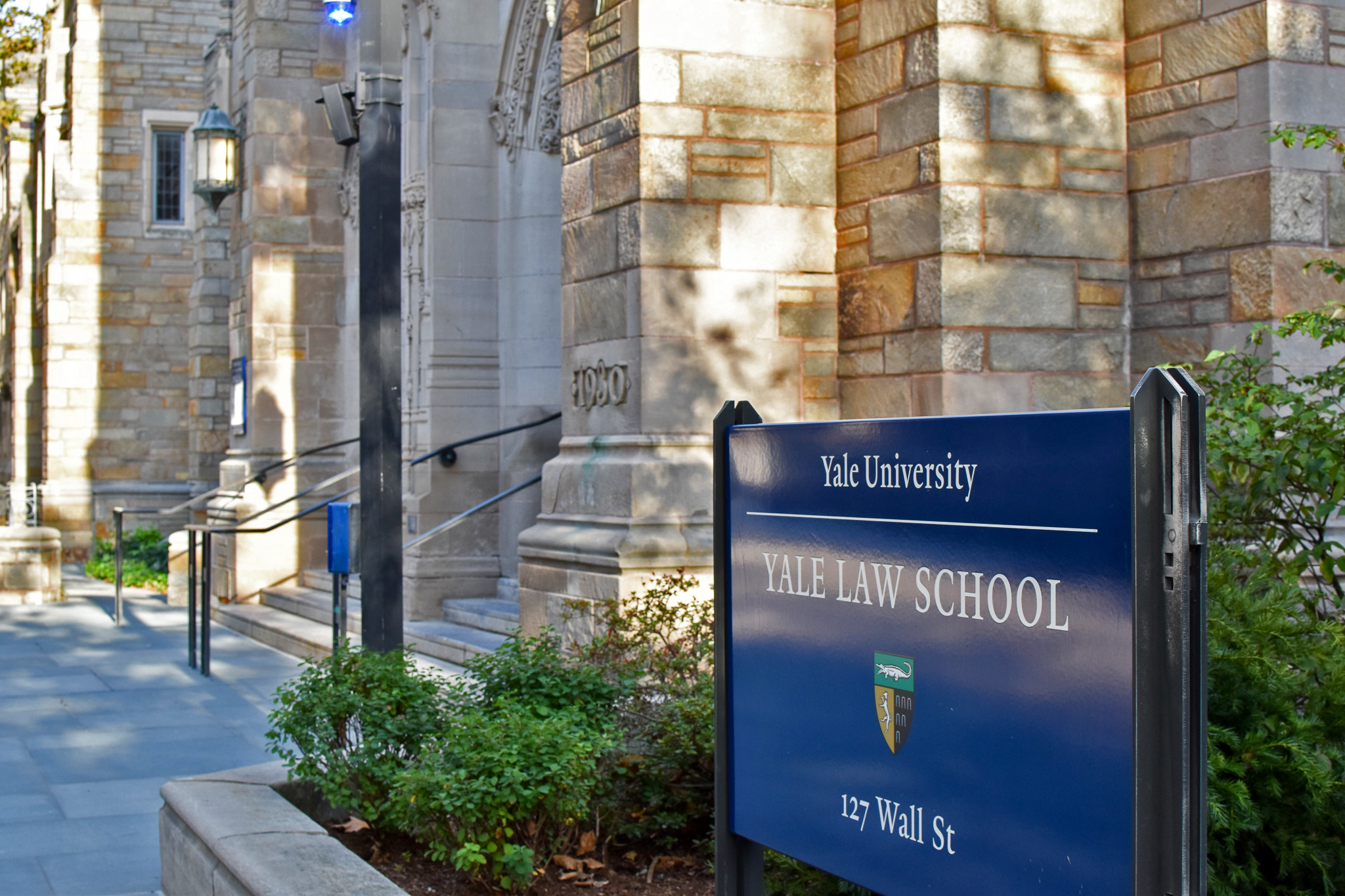Law School students tie police theory to policy at Yale’s Police, Law and Policy Clinic
In its first in-person semester, new Yale Law School clinic ties theoretical concepts about policing to tangible policy measures

Karen Lin, Photo Editor
In its first year of in-person work, the Police, Law, and Policy Clinic at Yale Law School is allowing students to translate empirical evidence on policing and reform programs into real and actionable justice-oriented policy measures.
The clinic, which is now in its second year of existence, partners closely with the Law School’s Justice Collaboratory, a nationally recognized social science research center aiming to shape a more “just and democratic” criminal legal system, per the Law School website. The Clinic and Collaboratory offer students the opportunity to gain exposure to real-life casework and advocacy within specific legal areas.
“In the events of last year’s controversies around policing reform and police-involved violence, including and especially the murder of George Floyd, there was this growing sense at the law school that the law school itself needs to be more proactive in this space,” explained Jorge Camacho LAW ’10, one of the clinic’s co-instructors. “At the same time, the Justice Collaboratory… they’ve long been working in the policing space, but they wanted to [also] increase their involvement in the creation of policy directly.”
Law professor Tracey Meares teaches the clinic alongside Camacho. Meares is a founding director of the JC, and Camacho is its Policing, Law and Policy Director.
In addition to working closely across the law school and the JC, the clinic also partners with the Council of State Governments Justice Center. CSG is a nonprofit that serves all three branches of government in all 50 states, and its Justice Center specifically focuses on assisting states and localities in improving outcomes for people involved in criminal and juvenile justice systems.
“It was 2020 when Jorge first came to me and said that there was a policing clinic at the law school that was looking at policing and law enforcement in particular but also criminal justice issues more generally,” said Megan Quattlebaum LAW ’10, director of the CSG Justice Center. “He was really interested in finding projects that students could add a lot of value [to] and also learn a lot in the process.”
While the clinic began last fall, this partnership first started up in the spring, and it is continuing through the current term and foreseeable future.
Projects in collaboration with the CSG Justice Center are both national and state-based. For example, a student group last year researched models of public safety that lessen emphasis on police presence, specifically for the state of Virginia.
Having launched during the 2020-21 academic year, the clinic spent its first two semesters over Zoom. Camacho said that he is pleased to begin in-person instruction within the clinic.
“This semester, we’re really hitting our stride,” Camacho said. “I think that’s the confluence of both being in the second year of maturity for the clinic as well as having the shared space to really move things forward in ways that are just much more difficult to achieve over Zoom.”
To participate in the clinic, students submit a statement of interest describing any prior experience with policing or policy and outlining their specific interest in policing issues. Between six and eight students are selected from the pool of applicants, and the remainder are placed on a waiting list. This semester, the clinic includes seven students.
As members, students participate in a weekly clinical seminar. Camacho also conducts check-ins with each project group, as do representatives from partner organizations like the CSG Justice Center.
“The clinic has been a remarkable opportunity to attempt to think about [public safety] problems in novel ways and see these conversations translated into substantive policies,” Callie Bruzzone LAW ’23, who is in her second year of working with the clinic, said in a Law School press release. “This important work is ongoing, and there is still so much to be done.”
Both Camacho and Quattlebaum, as alumni of the law school themselves, described the benefit of the real-world legal experience that clinics like these offer. Quattlebaum added that the clinics serve as a link between what students learn in the classroom and how they will practice law in the world beyond Yale Law School.
“I really loved and valued my clinical experience, and it feels really nice to be able to be a small part of paying it forward and giving students who are coming along after me an opportunity to do something that I hope they’ll find really meaningful,” Quattlebaum said. “I certainly know it’s meaningful for the states and localities with which we work.”
The Law School is located at 127 Wall St.







